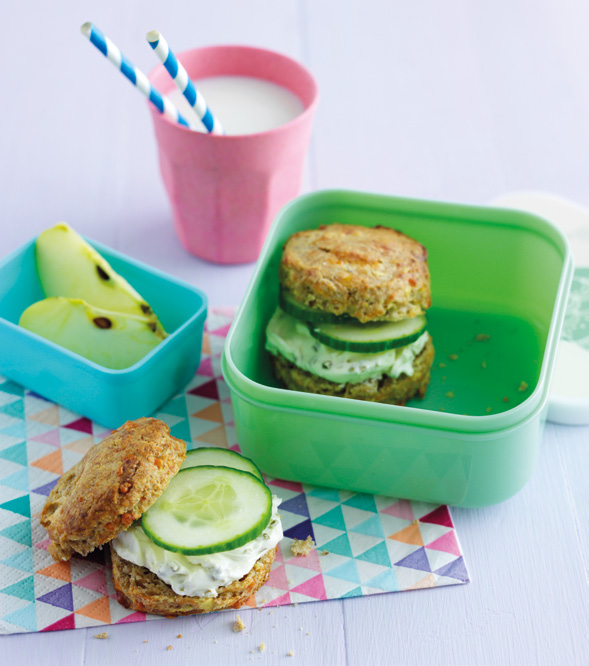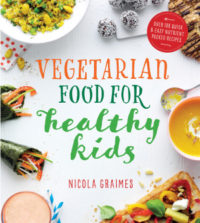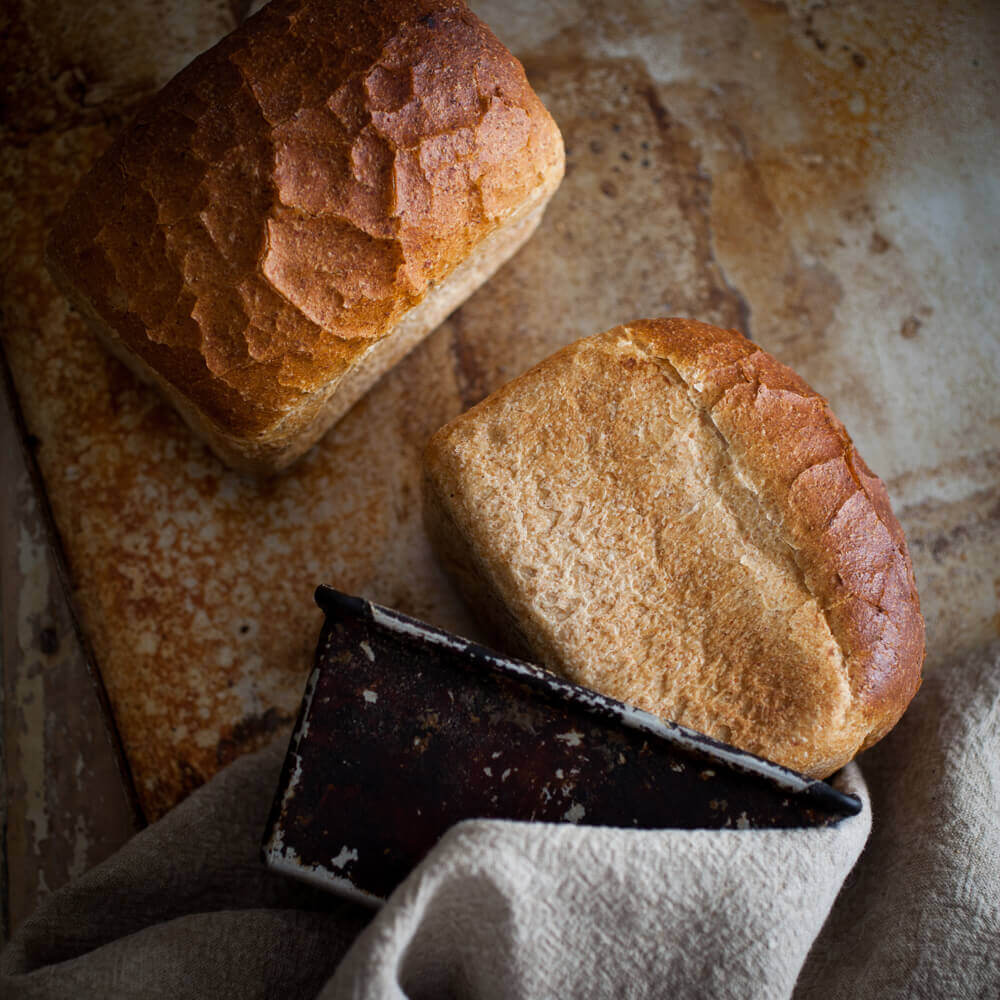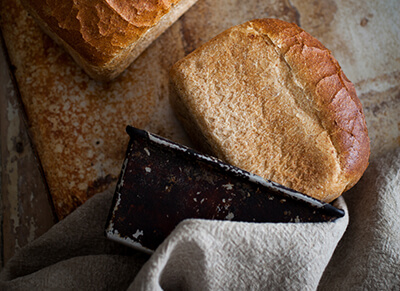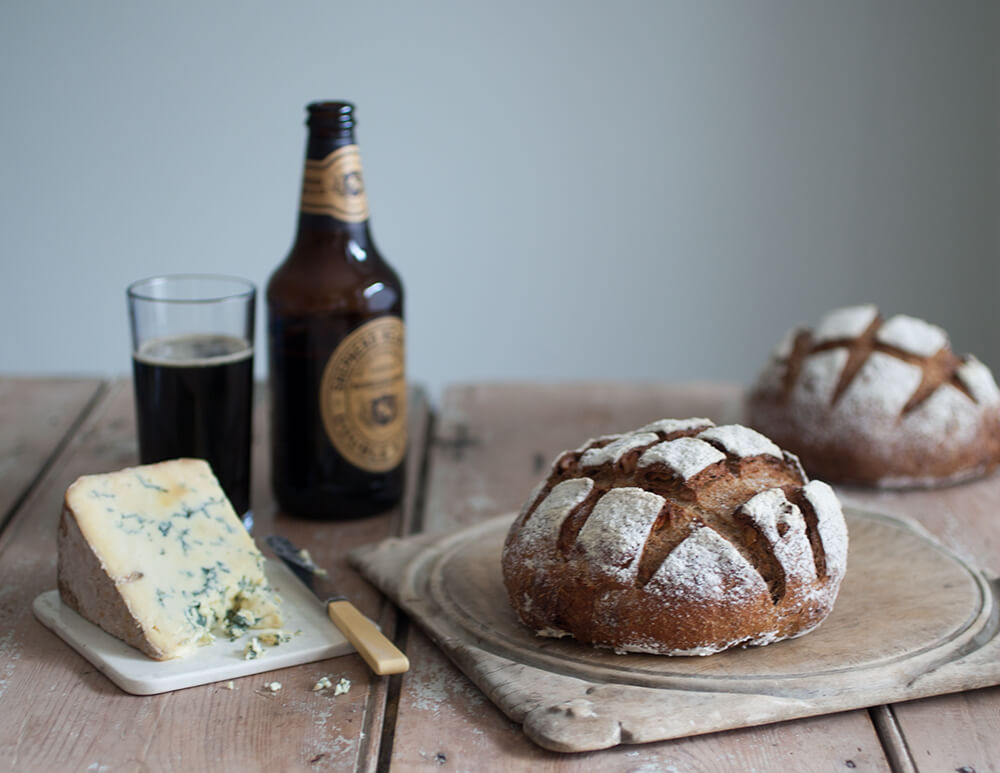
This article is adapted from Slow Dough by Chris Young.
Until relatively recently, the future of bread in Britain looked bleak. Following World War II, the number of independent high street bakeries headed into what seemed a permanent decline, with a handful of industrial giants and multiple retailers rising to dominance and helping to speed their demise.
A particularly dark day for Real Bread historians came in July 1961, when the British Baking Industries Research Association unleashed what later became known as The Chorleywood ‘Bread’ Process (CBP), which takes a shortcut through dough’s natural fermentation and ‘ripening’ time, slashing it from hours or even days to tens of minutes.
Convinced by expensive marketing campaigns to believe that one brand of CBP loaf was in any meaningful way different from another, we began to look to our supermarkets for sandwich loaves, using the same squeeze test we might use for toilet rolls. And the manufacturers and retailers conspired in a race to the bottom, so driven by low prices that by the end of the 1990s, you could buy a sliced CBP loaf for about 7p. Nope, that’s not a typo: in 1999 at least one supermarket dropped the price of its ‘value’ range own-brand loaves far below even the cost of production, to just seven pence.
From Roman and medieval statutes; through nineteenth century wholemeal advocates including Sylvester Graham and Thomas Allinson; national newspaper campaigns in the early twentieth; and the Campaign for Real Bread that ran in Britain as the 1970s turned into the 1980s; the fight for better bread is perhaps as old as bread itself.
In 2008, the food and farming charity Sustain joined forces with baker Andrew Whitley to discuss setting up a new organisation to fight for better bread. Quickly, this attracted the interest of hundreds of people, and after a series of open meetings, the Real Bread Campaign was launched on 26 November of that year. Since then it has thousands of supporters in more than twenty countries. Behind a rallying cry of ‘not all loaves are created equal!’ together we’ve been finding and sharing ways to make bread better for us, better for our communities and better for the planet.
The Real Bread Campaign doesn’t wish to deny any industrial baker their job, but believes that a small, independent Real Bread bakery is of greater benefit to both its bakers and to its local community. These benefits might include:
- Skilled, meaningful jobs for local people producing food for their neighbours.
- More jobs-per-loaf than an industrial loaf factory.
- Opportunities for social interaction between employees and customers.
- Support for the local high street and economy: money spent with a local business is more likely to be re-invested locally.
- Potential to support local producers, growers or other smaller or more ethical suppliers, by providing an outlet for their goods.
- The chance to shop on foot, by bike or public transport, rather than having to drive to an out-of-town megamarket.
While the wrapped, sliced industrial loaf still accounts for the largest percentage of the ‘bread’ market in Britain, it is in decline. In May 2016, Kantar Worldpanel reported that industrial loaf sales had fallen by more than £130 million in just 12 months, while IRI found that supermarkets had sold 50 million loaves.
While nobody seems to count the sales of small, independent bakeries (or even how many there are), in August this year, British Baker magazine reported that sales by one of the larger independents had risen by 41.5%, who had taken on more than 360 staff to meet the demand for their Real Bread.
As for the Campaign, it now has paying supporters in more than 20 countries, around 680 bakeries have added Real Bread to its map, and has more than 25,600 followers on Twitter. Its work has helped more than 10,000 children at over 150 schools learn to bake; encourage and champion the creation of more Real Bread businesses and secured the ASA’s rulings against misleading advertising by supermarket chains.
Chris Young is Campaign Co-ordinator for The Real Bread Campaign, a charity project with a mission to promote additive-free bread. In addition to compiling this book, Chris edits the quarterly magazine True Loaf, and wrote Knead to Know, the campaign’s first book. His work has appeared in publications including Spear’s Magazine, The Real Food Cookbook and the London ethical food magazine, The Jellied Eel, which he also edits.
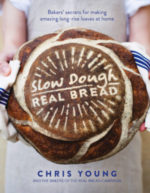
Chris Young
Slow Dough: Real Bread
£20.00, available from Nourish Books

